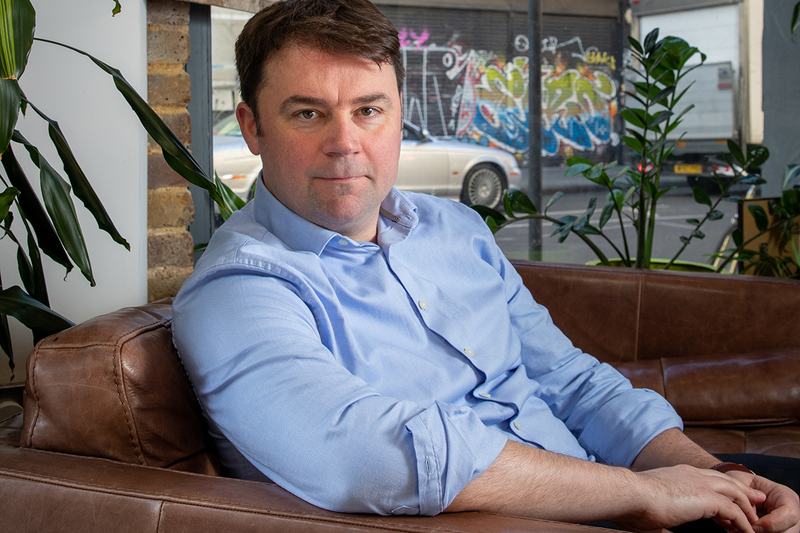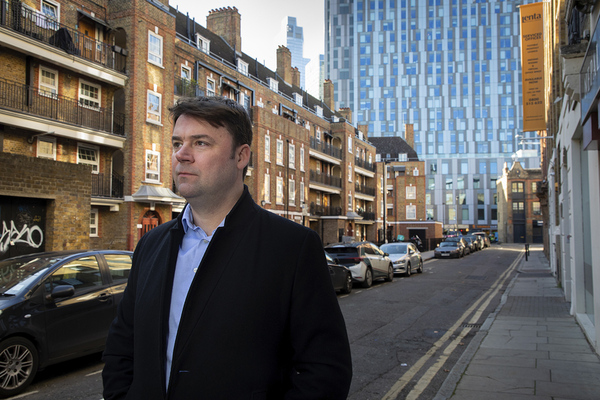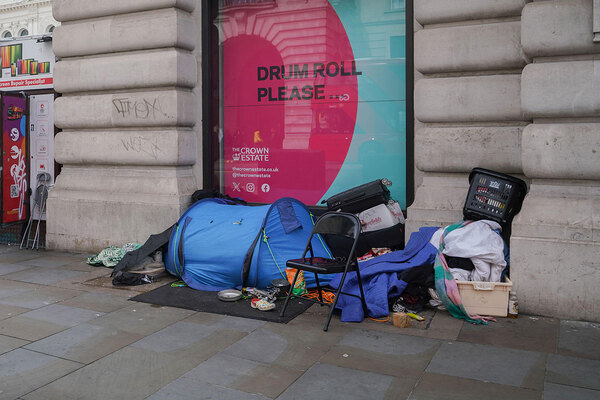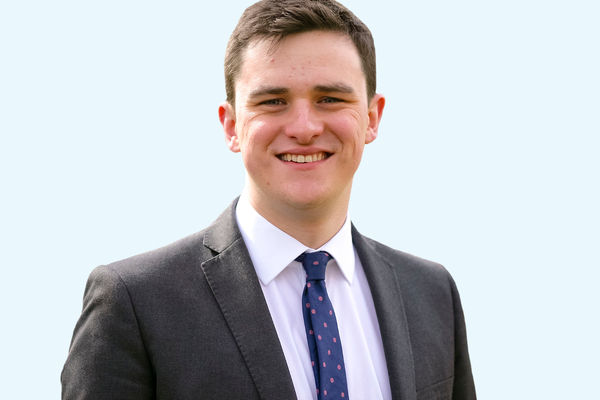You are viewing 1 of your 1 free articles
Crisis CEO Matt Downie on how the homelessness sector is primed for the new government
Labour’s victory has the potential to turn the tide of the UK’s homelessness crisis. Grainne Cuffe speaks to Matt Downie, chief executive of Crisis, about how he is preparing for change
We are sitting in Matt Downie’s office in London – which is welcomingly cool on a hot summer’s day – when the chief executive of Crisis tells me a horrifying story.
It was last winter and a father and his months-old baby faced sleeping rough for the night. The local council had no drop-in services for those seeking homelessness support, so he phoned a housing options helpline instead. He was refused help.
“The council didn’t believe it was true,” Mr Downie explains. “It’s very unusual for it to be a dad and a baby in this scenario and they just didn’t believe it.”
It gets worse. In the early hours of the morning, a council-commissioned outreach team found the father and the baby, who by that point had hypothermia. “That would not have happened if he had been allowed to walk into a building and say, ‘This really is a baby and we’re really going to have to sleep rough’,” Mr Downie says, before reassuring me that the infant recovered.
The story has come up as we discuss Inside Housing’s recent investigation into councils replacing drop-in homelessness support with online or phone services, which Mr Downie says allows councils “deniability”; it becomes “OK to say no” to what you “don’t know is in front of you”, he says.
He describes “an almost impossible system where effectively councils, because of their own pressures, are trying to not allow people through to them”.
Inside Housing is speaking to Mr Downie shortly after July’s landslide election of Sir Keir Starmer’s Labour government and the King’s Speech, which laid out legislative priorities that included carrying over the Conservatives’ plans to ban Section 21 ‘no-fault’ evictions, and introduce planning reforms aimed at delivering millions of new homes. Is change coming for those at the sharp end of homelessness?
For Mr Downie, who has an MBE for services to tackling homelessness and has run Crisis since 2022, the past decade has seen the decimation of his sector. Homelessness has risen to record levels, unprecedented numbers of people are sleeping rough and in temporary accommodation, and there has been an erosion of social housing and support services.
According to the latest data, there are 117,450 homeless households in temporary accommodation, including 151,630 children. Data published in July showed that 4,223 people were sleeping rough in London between April and June 2024, an increase of 29% on the same period last year.
Earlier this year, the Housing, Communities and Local Government Committee warned that the government must fix a £4bn hole in councils’ budgets for the 2024-25 financial year, or risk “severe impact” to services.
“As each month and year goes by, standards slip. The expectations, the humanity, the integrity of the whole system slip and slip and slip. And before you know it, you look behind you and you think, ‘How the hell did we get here?’” Mr Downie says.
He is excoriating about the Conservative and previous coalition governments’ records, blaming the benefit cap, the Local Housing Allowance (LHA) freeze, the ‘bedroom tax’ and a lack of any cross-departmental, co-ordinated strategy to end homelessness. He adds that temporary accommodation subsidy rules, which mean councils can claim only 90% of the 2011 LHA rate, encourage gatekeeping and need reform.
“The list of things that create and sustain homelessness in policy terms, and the list of things that you need in policy terms to address homelessness, have pretty much all gone in the wrong direction in England,” Mr Downie says.
“As each month and year goes by, standards slip. The expectations, the humanity, the integrity of the whole system slip and slip and slip”
He mentions some positives: the Everyone In initiative, which ensured everyone had somewhere to sleep during the COVID-19 pandemic, and the, albeit failed, target to end rough sleeping by 2024.
“In many ways, the problem of recent years is having just the odd initiative here and there: the veterans minister looking at veterans who are homeless, the rough sleeping target without thinking about broader homelessness. Meanwhile, massive other issues accumulate. Unless you look at it holistically, it won’t be solved.”
With Number 10 under new management, Crisis is calling for at least 90,000 new social homes per year; better welfare; housing benefits that cover the cost of rent; the abolition of priority need when applying for homelessness assistance; and support for vulnerable people in transitional stages, such as people sleeping rough or leaving prison, asylum seekers and care leavers.
Matt Downie’s CV
2022-present: Chief executive, Crisis
2019: Awarded MBE for services to tackling homelessness
2014-2021: Director of policy and external affairs, Crisis
2010-2014: Head of campaigns and public affairs, Action for Children
2007-2010: Campaigns manager, National Autistic Society
2004-2007: Head of membership and branches, National Autistic Society
2001-2003: Management accountant, National Autistic Society
1998-2001: Assistant management accountant and finance officer, Shelter
Mr Downie says the most pressing ask is for the government to establish an office for ending homelessness. The new cross-departmental unit would sit within the Cabinet Office, working to develop a long-term strategy for ending all forms of homelessness, similar to the Rough Sleepers Unit (RSU) that was set up by Tony Blair’s government in 1999. Run by now-Dame Louise Casey, who had been deputy director at Shelter, the RSU cut rough sleeping by two-thirds in less than three years.
Labour’s latest manifesto included a pledge to introduce a cross-government strategy to end homelessness, and it has been reported that a homelessness unit is being considered. Whether or not these things happen, Mr Downie is encouraged by the change in personnel at the heart of government.
He says there is now an awareness that, with 151,630 children in temporary accommodation, you cannot solely tackle rough sleeping. “You’d be ignoring an enormous part of the problem. I think [housing secretary] Angela Rayner understands that – I had the chance to talk to her about it pre-election. She completely understands that this is a system issue. It’s wonderful to hear somebody articulate the difference that social housing makes, not just because it’s a unit of bricks and mortar, but because of what that does in transforming life chances and the prevention of homelessness.”
“We’ve never known more about how to prevent and end homelessness, but the reality of homelessness is as bad as it’s been for decades”
He adds that England should learn from Scotland and Wales. Scotland used powers gained after devolution to achieve half the proportion of people suffering what Crisis defines as ‘core homelessness’ (including rough sleeping, living in unsuitable temporary accommodation such as B&Bs and hostels, and sofa-surfing) by 2021, compared with England, after Scotland ended the ‘priority-need test’ for those experiencing homelessness in 2012. Wales is introducing the same legislation.
“We’ve never known more about how to prevent and end homelessness, but the reality of homelessness is as bad as it’s been for decades,” Mr Downie says.
Crisis is working with prisoners in Liverpool and South Wales on critical time intervention services, which mobilise support for vulnerable individuals during periods of transition. The model was developed in New York City in the 1980s, when many people with psychiatric disorders were becoming homeless.
Mr Downie says: “It’s really obvious stuff, right? If someone goes into prison and they’ve got nowhere to live, months before they’re released you work with them so they have somewhere to live and you support them after they’ve left. And guess what? They not only have somewhere to live, but they’re far less likely to reoffend.”
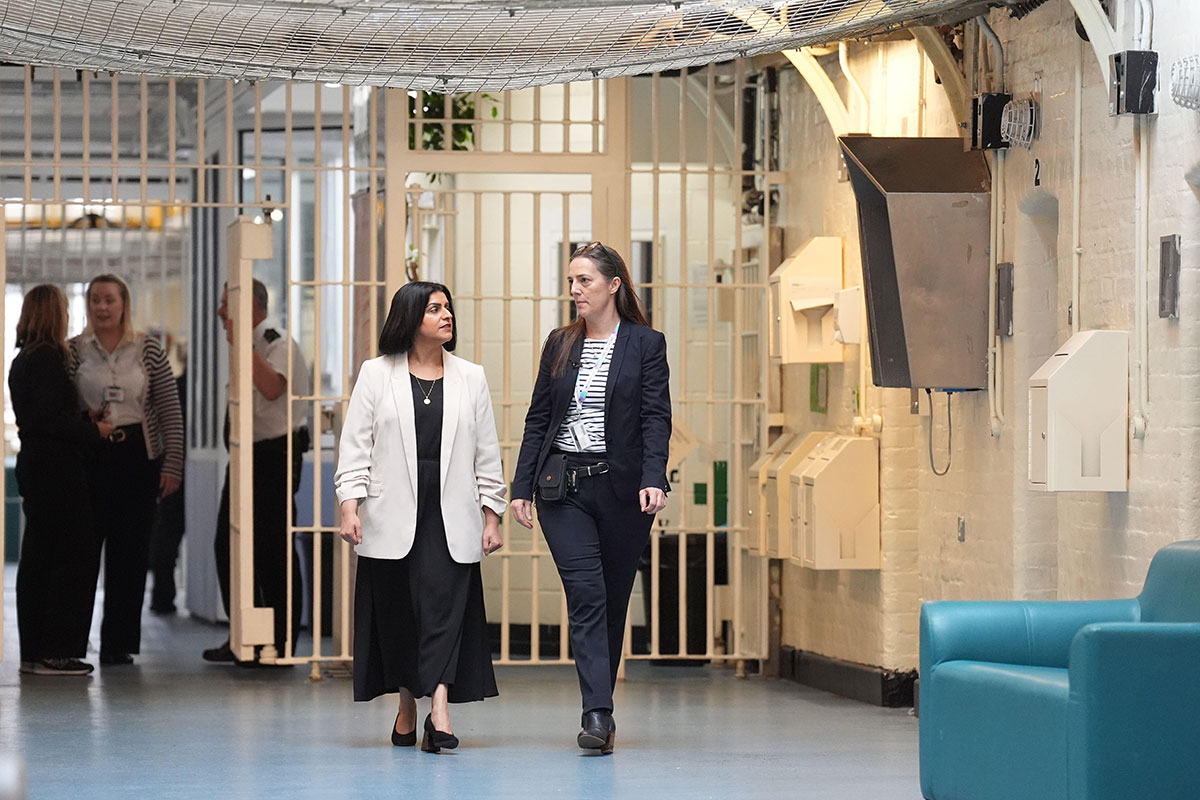
He also highlights Pathway, a charity that works with hospital teams to co-ordinate support for rough sleepers, and the Housing First pilots, which give people who have high support needs and are experiencing homelessness a stable home before anything else. This is then followed by intensive support to address any other needs they may have.
Earlier this year it was reported that Labour was considering taking Housing First nationwide. “If you’ve got good support alongside [housing], remarkable things can happen,” Mr Downie says, adding that what should be in place is a “completely end-to-end preventative service” for the cohorts of people who are at risk of homelessness. “Because we know who they are. But it’s systematically not happening.”
New problems are already cropping up for Sir Keir’s government. With prisons approaching full capacity, ministers are offering some people early release. Mr Downie says that a colleague told him about a prisoner who was recently told without warning that he was being released, and he begged to stay locked up because he had nowhere to go.
“It felt like an eviction,” Mr Downie says. “I’m now told that the number-one reason for people breaching their licence on early release is they don’t have anywhere to live. People are committing crimes to get back into prison. And our prisons are not exactly lovely places.”
“I think the business we’re all in is to be hopeful, to be positive, and have solutions and costed evidence ready for when there’s a political decision to do something amazing and really start preventing and ending homelessness”
Other things he would like to see scrapped include benefit sanctions, which threaten to remove benefits from people because they fail to meet certain conditions, such as attending job interviews. “How are you meant to attend interviews when you’re living out of a sleeping bag? You can’t even find somewhere to go to the toilet, let alone have the wherewithal, the mental capacity, the money, the clothing, the sleep needed.”
Mr Downie highlights Crisis’ study in 2015 which “proved categorically” that benefit sanctions caused and sustained homelessness. At the time, the organisation shared the study with ministers and select committees but, he says, “nothing changed”.
“In fact, then there’s further political rhetoric about how we need more benefits sanctions. So I really do hope that the change in government is a change in outlook towards what our welfare system is for, because that’s just out-and-out punishment for people who are in the most desperate need.”
Returning to the King’s Speech, Mr Downie praises the planning reform pledges and calls the proposed ban on no-fault evictions the “most important short-term lever that can be pulled to stop the flow of homelessness”, urging the new government to move swiftly or risk a surge in pre-emptive evictions. “Landlords know this is really going to happen now. So pace really matters and I hope it goes through really quickly.”
Clearly there is a lot of work to do. Is he hopeful? “I am hopeful. I think that if you work in homelessness, and you’re not hopeful, you should probably stop working in homelessness. No one needs convincing that homelessness is a bad thing, thankfully. I think the business we’re all in is to be hopeful, to be positive, and have solutions and costed evidence ready for when there’s a political decision to do something amazing and really start preventing and ending homelessness.”
Recent longform articles by Grainne Cuffe
The first year of tenant satisfaction measures: the results
Government overhauled consumer regulation following Grenfell. Now, an Inside Housing survey of more than 200 councils and housing associations reveals the first results from the new TSMs regime. Grainne Cuffe investigates
Awaab’s Law: how it could challenge and change the sector
The consultation is out for Awaab’s Law, setting time limits for English social landlords on responding to repairs that pose a hazard to tenants. But what exactly is in the proposals? Grainne Cuffe reports
Homeless and on hold: the battle to get support from councils
Being threatened with homelessness is stressful enough. But, in some council areas, the process of getting support from the council is making things harder. Grainne Cuffe reports
Housing officers under pressure
Grainne Cuffe talks to housing officers about the stress of their jobs, as Inside Housing reveals that turnover in some frontline roles has risen dramatically
Sign up for our homelessness bulletin
Already have an account? Click here to manage your newsletters
